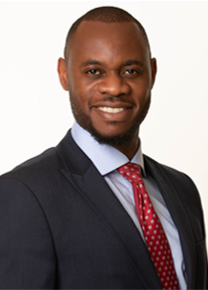 “At the time Nevirapine and Efavirenz were the first-line HIV drugs that were available for the treatment of HIV, but we had little guidance on side effects and how to choose. Nevirapine was cheaper but there was concern about adverse events. Both were equally effective but had different adverse event profiles,” said Lawrence Mbuagbaw, Research Methods Scientist in Clinical Epidemiology and Biostatistics, McMaster University and Co-director Cochrane Cameroon. “Also to complicate things, Neviparine was used in preventing mother-to-child transmission so children with HIV already had an exposure to it and there was little evidence from paediatric studies regarding its continued effectiveness.”
“At the time Nevirapine and Efavirenz were the first-line HIV drugs that were available for the treatment of HIV, but we had little guidance on side effects and how to choose. Nevirapine was cheaper but there was concern about adverse events. Both were equally effective but had different adverse event profiles,” said Lawrence Mbuagbaw, Research Methods Scientist in Clinical Epidemiology and Biostatistics, McMaster University and Co-director Cochrane Cameroon. “Also to complicate things, Neviparine was used in preventing mother-to-child transmission so children with HIV already had an exposure to it and there was little evidence from paediatric studies regarding its continued effectiveness.”
“I was involved in clinical practice at the time and we were uncertain about which drug to use. I talked to Charles Wiysonge, a senior colleague from Cameroon and he convinced me that this would make a good question for a Cochrane review. He also put me in touch with Nandi Siegfried and James Irlam.”
This led to Mbuagbaw initially joining the HIV Mentoring Programme from late 2005 and later RAP.
The resulting review was completed in 2010 and later updated. It was used to inform the WHO guidelines.
Mbuagbaw continued to work on reviews for the Cochrane HIV/AIDS group and the Pregnancy and Childbirth group and also started mentoring others. He also trained further and eventually became an editor for the Cochrane Infectious Diseases Group while also becoming involved in Cochrane activities more broadly on the continent and in building capacity in Cameroon.
“We also worked on building Cochrane Africa. We became the Francophone hub and the next logical step was the establishment of Cochrane Cameroon where I continue my role as co-director.”
“Cochrane Cameroon is involved in advocacy, capacity development, research, training of civil society organisations, Ministry of Health staff, and medical and nursing students. There are lots of systematic review authors from Cameroon.”
“We are a small centre, but I believe we are bound to expand. Cochrane Cameroon is the sole French-speaking centre in sub-Saharan Africa. Our mandate is therefore to reach other countries and we are working on acquiring grants to upscale our activities.”
“The mentoring model was excellent. It was very hands-on and also blocked out dedicated time for systematic review activities, which people need. It should definitely be continued. It was a life-changing experience for me which gave me a new way of thinking that has continued since then.”
